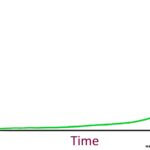The Offspring’s catchy tune, “Why Don’t You Get a Job?”, from their album “Americana,” became an anthem of sorts, playfully mocking those who avoid work. However, alongside its commercial success, the song sparked a debate among music critics, raising questions about its originality and drawing comparisons to a classic Beatles track.
Critics and listeners alike began to point out the striking similarities between “Why Don’t You Get a Job?” and The Beatles’ lighthearted “Ob-La-Di, Ob-La-Da.” Publications such as the Houston Chronicle noted the song was “reminiscent” of the Beatles’ work, while the Washington Post and the Buffalo News used the word “echoes” to describe the resemblance to the Paul McCartney and John Lennon composition. The Detroit News went further, characterizing the Offspring’s song as “very close to mimicking” the earlier hit.
Adding fuel to the fire, KROQ-FM (106.7), a Southern California radio station that had been a significant supporter of The Offspring, joined in on the critique. Sluggo, a popular nighttime DJ at the station, famously played a version of “Why Don’t You Get a Job?” interspersed with segments of the Beatles’ original song, highlighting the perceived similarities for listeners.
However, not everyone in the music industry viewed the situation as a clear-cut case of plagiarism. Pete Howard, publisher of the music newsletter ICE, dismissed the controversy as “a tempest in a teapot.” He argued that while “there are some vague melodic similarities,” labeling it as plagiarism would be excessive, suggesting “there are 10,000 other cases out there” with similar levels of resemblance.
The accusations became a sensitive issue for The Offspring, a band that had already faced criticism from some within the punk rock scene for achieving mainstream success. Amidst the growing discussion, the band, who were on tour at the time, chose not to address the controversy directly and declined interview requests for this story. Similarly, officials at Columbia Records, their label, also refrained from making any official statements regarding the plagiarism claims. Executives at Sony/ATV Music Publishing, the company managing a large portion of the Beatles’ catalog, were also unavailable for comment during the unfolding controversy.
The central question that emerged from this musical debate was whether the perceived similarities between “Why Don’t You Get a Job?” and “Ob-La-Di, Ob-La-Da” constituted copyright infringement, potentially leading to legal action. However, several industry observers considered it unlikely that the shared elements would meet the legal threshold for copyright violation.
One prevailing theory suggested that The Offspring’s management or label would have proactively assessed the song’s potential for copyright issues before its release. As one anonymous music expert stated, “They sound enough alike that I’m sure someone there checked on it. That’s a standard practice these days.” This implied a level of due diligence within the music industry to avoid such legal pitfalls.
Defining music plagiarism in legal terms is not straightforward. Edward P. Murphy, president of the National Music Publishers Assn., representing 600 American music publishers, emphasized the lack of a definitive standard. “There’s no standard, no set pattern you can use,” Murphy explained, adding, “If there was a standard, people wouldn’t be going to court.” This ambiguity contributes to the fact that very few music plagiarism cases proceed to court, often due to the high legal costs involved, leading to settlements or abandonment of claims.
Attorney Donald S. Passman, whose clientele includes prominent artists like Mariah Carey and Quincy Jones, outlined the legal criteria for song copyright infringement. A plaintiff must demonstrate that the defendant had access to the original song and that there is “substantial similarity” between the two works. Passman highlighted the precedent of George Harrison’s 1981 case, where he was found liable for unconsciously copying Ronnie Mack’s “He’s So Fine” in his song “My Sweet Lord,” even without intentional plagiarism. “It sounds strange,” Passman noted, “but it’s part of protecting an artist’s work.”
M. Fletcher Reynolds, a copyright attorney with expertise in musical theory, offered a broader perspective, noting the inherent limitations within pop music’s vocabulary and the enduring influence of musical pioneers like The Beatles. “The music tends to trade on what’s familiar and what has been successful, so there’s things that sound a lot like other things,” Reynolds stated. He further elaborated on the balance between originality and commercial appeal in pop music, suggesting, “Originality is great up to a certain point but [pop music] has to be in a stylistic context. If you play something completely original on the radio, who wants to hear that?”
Ultimately, the debate surrounding “Why Don’t You Get a Job?” remained largely within the realm of critical discussion and industry chatter. Despite the apparent melodic similarities to “Ob-La-Di, Ob-La-Da,” the likelihood of legal repercussions seemed minimal. The controversy highlighted the complex intersection of musical inspiration, originality, and copyright law in the realm of popular music, leaving audiences and industry professionals to ponder the fine line between homage and imitation.
